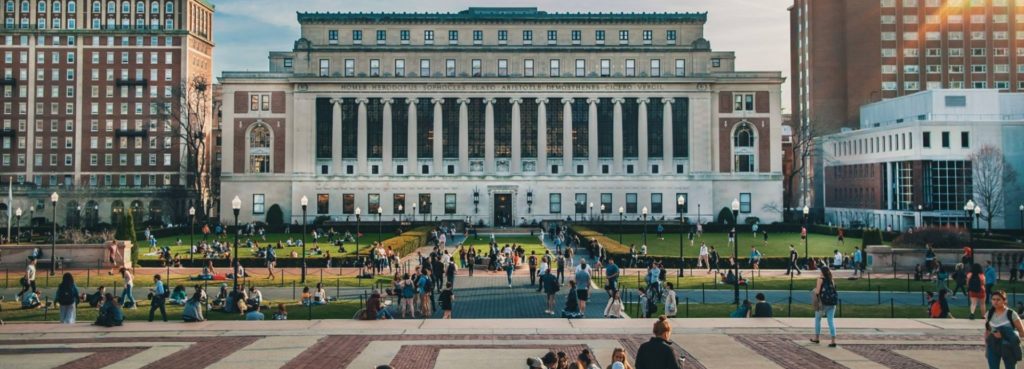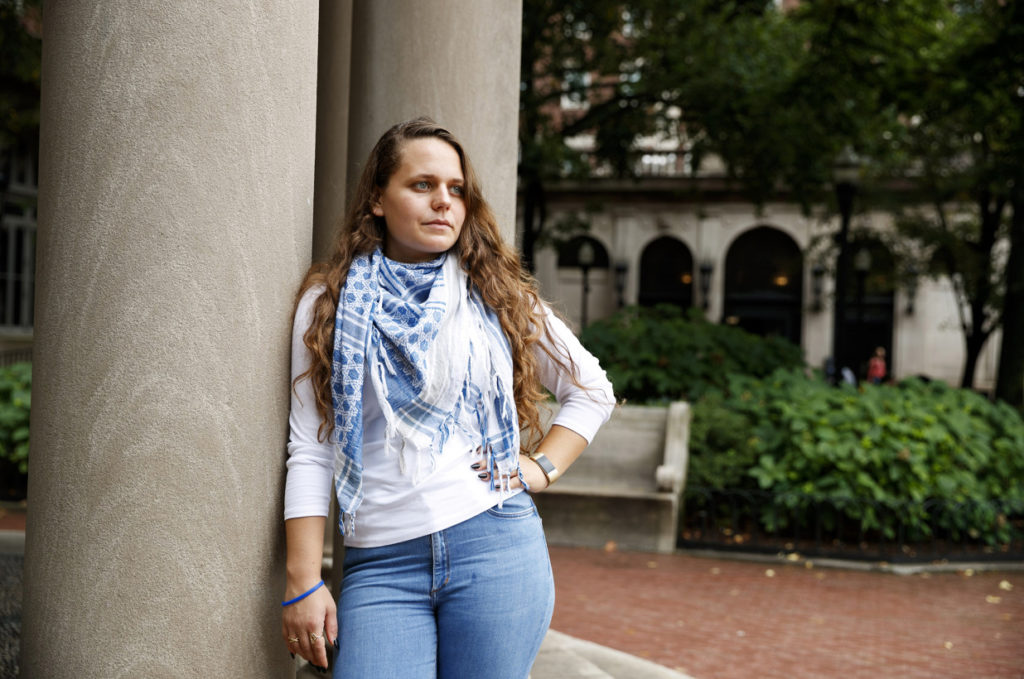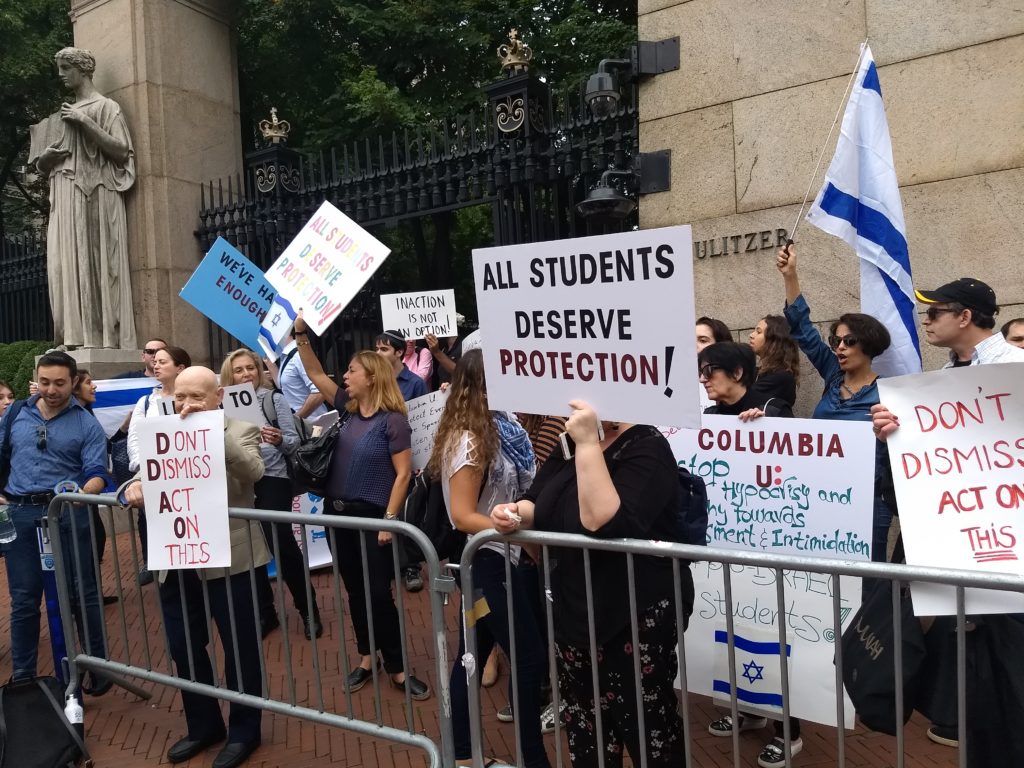There’s a dearth of views beyond those being represented in lecture halls.
Steve Bannon was invited to headline The New Yorker festival, which kicked off last Friday until a chorus of opposition from the left forced the publication to disinvite him. Apparently, Malcolm Gladwell, a staff writer at The New Yorker, was wrong when he “thought that the point of a festival of ideas was to expose the audience to ideas.”
When New York Times columnist Nicholas Kristof wrote about the dangers of “liberal intolerance,” the notion seemed inconceivable, maybe even somewhat paradoxical. But two months into our master’s program at Columbia Journalism School, those two words ring a harrowing truth that we need to address.
American college campuses are oftentimes labeled progressive and hailed as liberal bastions where students of all races, religions and sexual orientation are welcome, yet there is a type of tolerance that institutions like Columbia neglect to promote: diversity of thought and political perspectives.

Two affiliations at Columbia University, widely considered divergent, demonstrate this point quite powerfully, though we are sure there are more examples: identifying as a Republican or being pro-Israel. Though different, collectively these illustrate the university’s failure to encourage dialogue between people with opposing perspectives while perpetuating an echo chamber that gives those within a false impression that their outlook is truly universal and morally superior.
Our time in New York City, at the Ivy League’s only graduate school of journalism, made us realize that there’s a dearth of views beyond those on the left being represented in lecture halls and classrooms. Too many students have expressed frustration with not being able to articulate their views for fear of rebuke or ostracism. In one case, a history sophomore at Columbia College told us that “many people do not share their true beliefs in compulsory literature and philosophy classes because they know that if they do so they will receive lower marks and the hatred of their fellow classmates.”
The mere thought of voicing support for Israel, while still advocating for Palestinian rights, seems unfathomable for some here. The gross mistreatment of Ofir Dayan, a political science major, and daughter of Consul General of Israel in New York Dani Dayan, is symptomatic of an environment that shies away from ideological diversity.

Dayan’s first incident, as reported by the New York Post, occurred last fall when she was speaking Hebrew in the lobby of Columbia’s Middle East Institute before being vilified by a girl nearby for “killing Muslim babies!… You’re a murderer.”
Dayan believes that the public safety official who stood by idly as she was being harassed, as well as the school’s inability to act on complaints filed by frightened pro-Israel students, helps advance the simplistic narrative that Israel is always the evil oppressor and that Palestinians are the perennial victims, leaving little room for discussion or nuance.
The “We’ve Had Enough” rally, held last Thursday outside Columbia’s main gates, was a reaction to the university’s dismissal of complaints filed by pro-Israel students who had been “harassed and systematically silenced,” according to the event’s Facebook page.
Being outspoken as a Republican can be equally isolating. Representatives from the Columbia University College Republican group told us that they “are probably the most detested group on campus.”
They added in an email exchange: “Trump’s election really fueled a general hatred for any individuals or groups that go against the grain and don’t vote liberal. Conservative students feel afraid to speak to their friends about their true political views, which is why we are constantly getting reached out to privately by students that would like to attend our events but can’t risk publicly ‘liking’ us on Facebook in case their friends see.”
One vocal Trump supporter at Columbia Business School, who wishes to remain unnamed, said the prevailing assumption that every student and faculty member around is a liberal leads to a lack of “real discourse” on issues. He said he was once invited by the president of the Roosevelt Club, a student-run progressive think tank, to balance the scales as the token voice on the right “because it’s a circular firing squad,” he said. “They’re just saying the same thing. I’m more like a novelty.”
Many on the left, too, are fearful of the wrongly perceived uniformity of political and ideological sympathies on campus. “I am a Democrat, and I believe, especially in the context of an academic setting, that it is important to engage in constructive discourse with people on opposite ends of the ideological spectrum,” said Matthew Ellison, a filmmaker and fellow journalism student at Columbia. “We are living in politically charged times and it is dangerous to suppress ideas that are not aligned with our politics as it limits our capacity to progress as human beings.”
While the university and its community may have a dominant leaning, ideologically speaking, it should not be nurtured at the expense of those with dissenting vantage points feeling marginalized. An intellectual approach that may not align with the so-called mainstream narrative is vital in the kind of discussions that lead to constructive, if not innovative, roadmaps to solving problems while preventing “groupthink.”
What is needed are policies and mechanisms that promote genuine dialogue while taking steps to ensure that harassment is not tolerated under the guise of free speech, as Ofir Dayan had experienced. Institutions must devise inclusive settings that allow people to work together, despite their disagreements.

University campuses should be the safest spaces to ponder over alternatives political perspectives and ideologies. But this is not the case. The reality is that intellectual diversity in these places is becoming increasingly limited.
If institutions like Columbia pride themselves on attracting students from all corners of the earth, then they should be willing to protect views that fall outside the campus mainstream. Kristof’s belief that “universities should be a hubbub of the full range of political perspectives from A to Z, not just from V to Z,” has never felt truer.
Contributed by Caleb Galaraga and Columbia University CAMERA Fellow Jonathan Harounoff. Originally published at Jerusalem Post.
